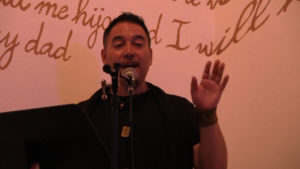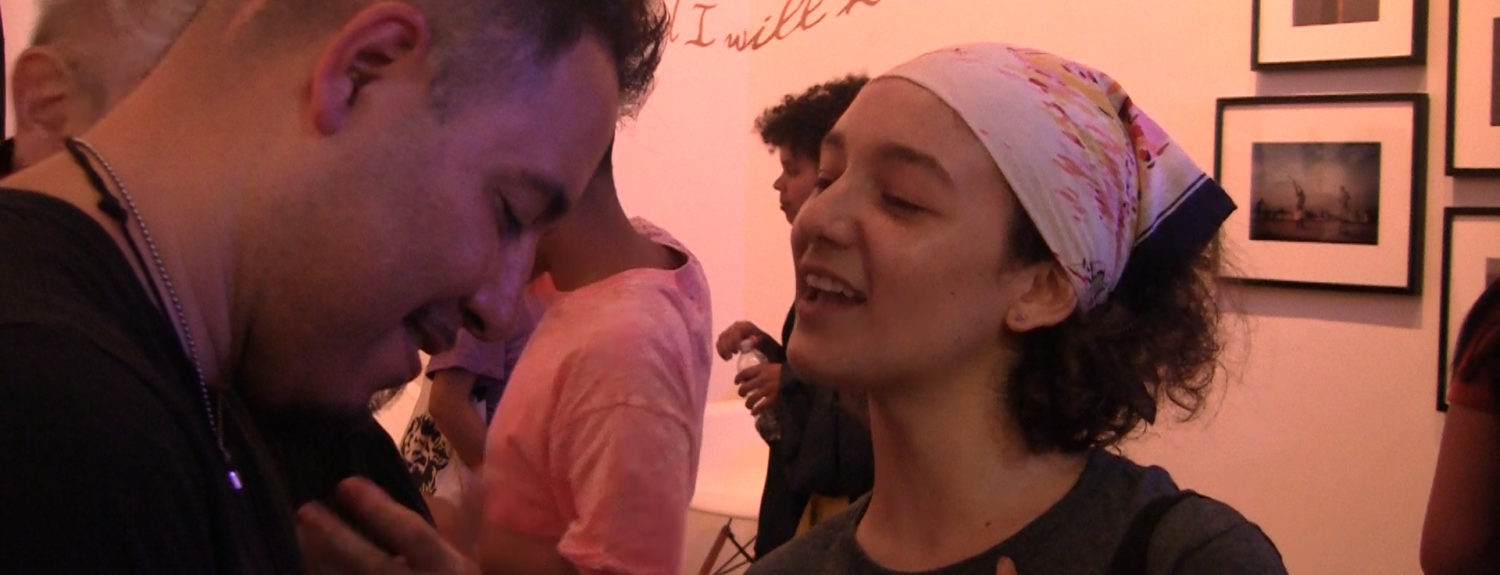Lifestyle & Culture
Author Reflects on Gay Pride, Progress, the Work Ahead
By Alexandra Aguirre
Spectrum staff
It’s been 20 years since Emanuel Xavier conceived and edited Pier Queen, an anthology of poems about what it means to be gay and to catch hell because of that.
“The world isn’t always kind, especially to people like me,” said Xavier, 41, a full-time poet, author, editor and gay rights activist.
When he was 16, growing up in Bushwick, Brooklyn, his mother one day cornered him with questions about the man who’d dialed up asking to speak to her boy. The man called himself young Xavier’s boyfriend.
“I just blurted it out. That I was gay … And that’s when things got ugly.”
He ran into the bathroom of his family’s apartment. His mom chased him.
He woke up in Wyckoff Heights H ospital, throwing up charcoal that the nurse gave him to purge him of an overload of extra strength Tylenol. He remembers that his mother left the hospital, where he remained on suicide watch, a trauma he recounts in his poem “Deliverance.”
ospital, throwing up charcoal that the nurse gave him to purge him of an overload of extra strength Tylenol. He remembers that his mother left the hospital, where he remained on suicide watch, a trauma he recounts in his poem “Deliverance.”
Though he was mentally and emotionally shaken, Xavier’s mom ordered him to leave the house, after he was released from the hospital. She refused to live with a gay son.
Newly homeless, Xavier fled that night to a gathering spot for people like him, the Christopher Street Pier, just off West Side Highway: “The only safe space we had was on the edge of one of the greatest cities in the world, a pier hanging off the very edge of Manhattan. It’s symbolic in many ways.”
From what still is known as the Piers, he worked as a prostitute to support his addiction to Ketamine, a prescription painkiller, and, in other ways, to support his basic survival. A caring, older cousin eventually took him into his home, and that’s when Xavier decided to turn his life around.
His path to becoming a writer and editor started while he was 25, working at A Different Light Bookstore in the West Village and performing at the Nuyorican Poets Cafe. He noticed that there weren’t any books about being a gay man of color in New York.
He was empowered by his spoken and written words detailing what he’d endured—his cousin sexually abused him when was three, he said—and what he’d overcome. As much as he was speaking for himself, he believed was saying something on behalf of others who’d also been abused but, for whatever reasons, were silent.
“If we don’t tell our stories, who will?” he said.
Some in the audience at the Cuchifritos Gallery in Essex Market, where Xavier recently reflected aloud on his 20-year journey, said what he was sharing resonated with them.
“Emanuel and I are both Ecuadorian and even though I am not gay, I can still relate to his struggles. Because, as humans, we have all felt struggle, pain, fear,” said Maria Dominguez, 29.
The founder of OUTmedia, Shelly Weiss, 70, also at the event, said Xavier’s poetry encourages people to express themselves. “People in these communities need to find each other, support each other … They can be your tribe when you’re rejected by everyone else,” said Weiss, who also advocates for people of color and those in the trans community.
Xavier’s former struggles ran along a spectrum. He wasn’t just gay, he was a gay man of color, a Latino. And some Latinos are homophobic. His Latino stepfather derided his lack of masculinity, his softness. Some members of his own family called gay people “disgraces.”
“There’s a lot of machismo,” Xavier said.
So, he does what he can to help homeless youth of color who aren’t heterosexual follow an easier path than his. Xavier has organized fundraisers and other events for The New York Pier AIDS Education Coalition, Live Out Loud and Sylvia’s Place Homeless Shelter.
“When you’re put out on the street because of who you choose to love … for loving the same sex, you’re still going to face a lot of difficulties because people out in the world are telling us we’re going to go to hell, we don’t belong, we’re deviants,” Xavier said.
Looking back over his life, he sees how much things have gotten better for gays and others who are not straight. He also believes there is much more progress to be made.
Despite his family’s earlier rejections of him and his lifestyle, Xavier and his mother now frequently are in touch. She owns a copy of Pier Queen. She calls him before his performances. “Good luck,” she tells him.
Regardless of whether their loved ones come around, he encourages people to love and accept themselves. No matter what.
“I was coming into my own sexuality. I don’t have regrets,” Xavier said. “I take it as a learning experience. We are all put on a particular path for a reason.”


